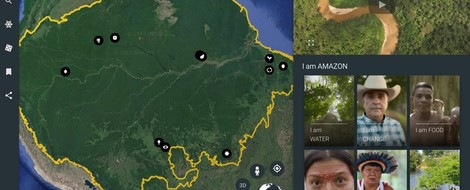Your podcast discovery platform
Curious minds select the most fascinating podcasts from around the world. Discover hand-piqd audio recommendations on your favorite topics.

piqer for: Climate and Environment
Pamela works as a Press & Communications Manager for an international NGO (IWGIA) defending indigenous peoples' rights. She holds an Erasmus Mundus MA in Journalism, Media & Globalisation from Hamburg and Aarhus University and an MA in Political Science from the University of Buenos Aires. She will be putting the eye on international media coverage of indigenous communities and their demands.
Brazil's Indigenous Peoples Mapping Deforestation On Google Earth
Illegal logging in Brazil represents 25% of the world market and in 30 years has deforested 20% of the Amazonian jungle. This escalating deforestation directly affects indigenous communities, whose national institute (FUNAI) is facing severe cuts. With the aim of giving indigenous peoples the opportunity to map deforestation in real time, Google Earth and Google Maps have recently presented the results of a project called "I am Amazon".
The project aims at giving the users a real perspective of the world's connection to the Amazon. Through the tool Voyager anyone can explore and learn about 20 indigenous lands in Brazil. The mobile and interactive experience makes clear the supply chain and the identity of those living in the areas where extraction takes place.
Technology applied to protect the forest and its people
Google's far-reaching project offers the first comprehensive online atlas of indigenous territories in the country. Here you can get the details on how the project led to integrating indigenous geography into Google Maps.
Perhaps the most interesting feature of the project in terms of advocacy is Google Timelapse, which offers a great visualisation of the rate of deforestation on indigenous lands.
"On Google Maps and Earth, you can now see the names of certified indigenous territories in Brazil, search for indigenous territories using the name of the ethnic group living there and see how forests are maintained in these areas compared to other parts of the Amazon," explained Raleigh Seamster, Program Manager at Google Earth Outreach.
Is this a step in digitally recognising the land of those who national governments criminalize? Is Google in the forefront?
If you dare to click around, you may find hints of what a more fair reflection of our planet could look like.
